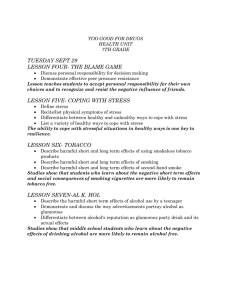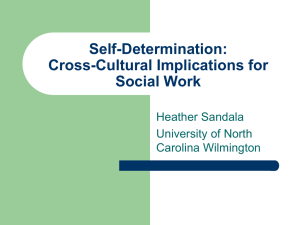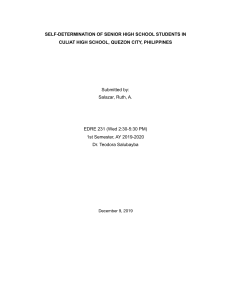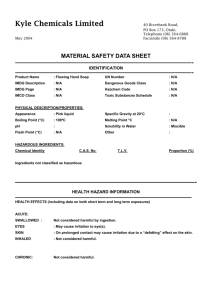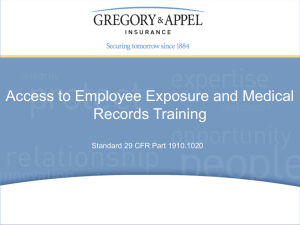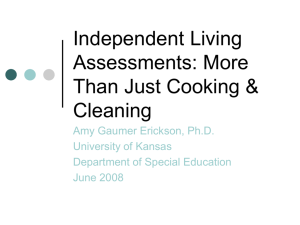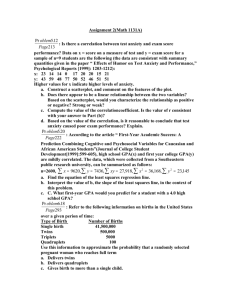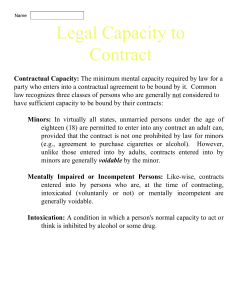Review from the text * 382-385 (Opinion in Canterbury V. Spence)
advertisement
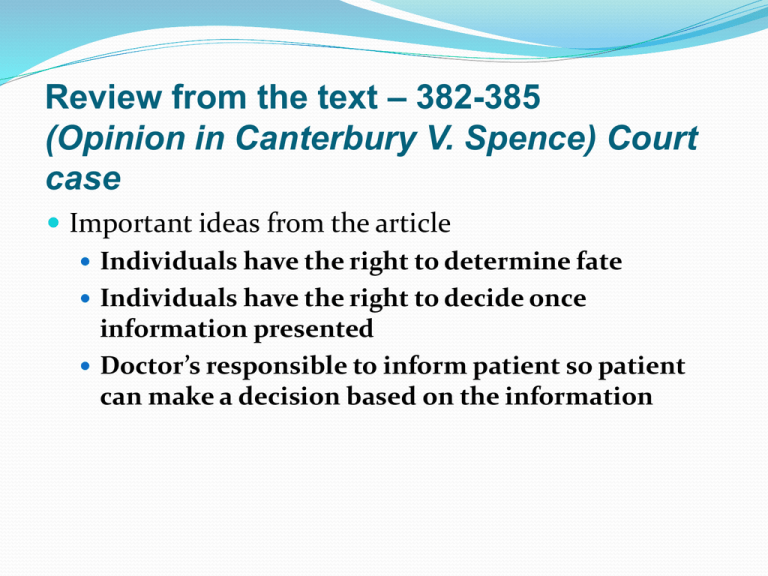
Review from the text – 382-385 (Opinion in Canterbury V. Spence) Court case Important ideas from the article Individuals have the right to determine fate Individuals have the right to decide once information presented Doctor’s responsible to inform patient so patient can make a decision based on the information Who decides and What? What is competency? How would you define it? Competency Defined as the ability to make rationale decisions What is self-determination? Free choice of one's own acts or states without external compulsion Being an adult they are presumed to be competent, determine incompetence is the burden of others – WHY? Explain There are times when society has to infringe on a person’s right to choose. Give an example: The mentally ill or mentally disabled. Must go before a court. Adult’s have the right to make decisions about their treatment / body. Should this apply to things in society that are legal but harmful? Smoking? Eating poorly? Is there or should there ever be a limit? Difficulty with the law Becomes tricky and the law gets involved when a person refuses treatment that would be lifesaving. Which is why a DNR (Do Not Resuscitate) What about things not illegal but harmful? Refusing to quit smoking or to stop eating poorly. Recently on You-tube a girl claimed for money she would eat until she weighed 1000 pounds. Is she incompetent? Everyone knows gaining that much weight is unhealthy. Is she crazy? Does she have that right? Responsible?!? With the over weight question. If we are paying for this person health care (either through Health Care plan or Medicare) do we have a say? We would question whether the person fully appreciates the ramifications for accepting as well as denying treatment? Should we? Denying a person self-determination What is Self-Determination? When should the person’s independence and self- determination should be overruled? In Eight Pounds, Will Smith’s character climbs into a tub full of ice with Box Jelly Fish which are deadly. Do we have the right to stop him? According to the text “autonomy drops out altogether as a moral consideration in decisions about respecting refusal of treatment.” Thoughts? Real Life Case Could you serve on a jury if a person was being challenged by the family or state for being incompetent simply because they refused to stop doing something legal but harmful?
